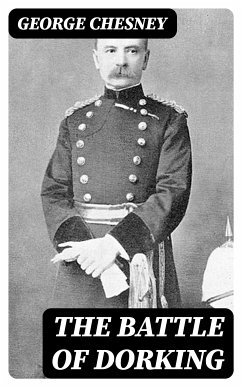In 'The Battle of Dorking,' George Chesney crafts a prescient tale that intertwines fiction with socio-political commentary, capturing the anxieties of Victorian Britain in the face of foreign invasion. Written in the aftermath of the Crimean War and amid growing fears of German imperialism, Chesney employs a blend of speculative narrative and military realism to explore themes of national identity and self-defense. The novella is structured as a hypothetical account of a devastating attack on England, using a stark yet accessible prose style that mirrors contemporary military reports, making it a foundational work in the genre of invasion literature. George Chesney was a notable figure of his time, both as a writer and a military officer, and his experiences undoubtedly informed his depiction of an imagined conflict. His background in the British Army, coupled with a profound awareness of geopolitical tensions, prompted him to confront the vulnerabilities of British society. Chesney's work reflects the cultural zeitgeist of late 19th-century Britain, which wrestled with the complexities of modern warfare and imperialism. 'The Battle of Dorking' is a compelling read for anyone interested in the intersections of literature, history, and military strategy. Its vivid portrayal of a nation grappling with existential threats resonates beyond its time, offering insights into contemporary concerns about security and national identity. Chesney's pioneering narrative invites readers to reflect upon the fragility of civilization in the face of aggression, making it a must-read for both scholars and casual readers alike.
Dieser Download kann aus rechtlichen Gründen nur mit Rechnungsadresse in A, B, BG, CY, CZ, D, DK, EW, E, FIN, F, GR, H, IRL, I, LT, L, LR, M, NL, PL, P, R, S, SLO, SK ausgeliefert werden.









